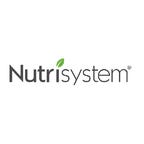Best Weight Loss Programs for 2024
Looking for the right weight loss program for you? The best weight loss program should educate and inform your calorie intake, exercise regiment and eating decisions. Here are our top picks.
 Why You Can Trust CNET
Why You Can Trust CNET
What to consider
Cost
Convenience
Taste
Community
Long-term results
Millions of US adults try to lose weight each year, with strategies that include doing exercise, having a calorie deficit and eating more fruits and veggies. But if you're really considering losing weight, there are proper weight loss programs that can help you form healthy habits for truly sustainable weight loss.
This guide to popular plans should help you evaluate the best subscription for you. It can also help you decide if seeking a nutritionist, instead, is in your best interest. One of our previous recommendations, Jenny Craig, has recently ceased operations. However, there are a number of other weight management programs that I have both personally taste-tested and analyzed below that can assist you in making lifestyle changes that can help you get to and maintain a healthy weight. I also tapped nutrition experts to learn just what makes a good weight loss program and red flag to watch out for -- here's what you should know.
What is the best overall weight loss program?
I dove deep into each of the weight loss programs on this list and crowned WeightWatchers as the best overall weight loss program. WeightWatchers makes the top of this list due to its general nutrition and wellness education, choices for those with diabetes and who are vegan or vegetarian, the on-demand workouts, and 24/7 support.
Editor's note: Weight loss programs aren't recommended for those with a history of disordered eating. Consult your doctor or nutritionist before beginning any diet or weight loss program.
Best weight loss programs for 2024
WeightWatchers often tops lists of "best diets," with a primary reason being the education provided to help users make positive diet changes. The popular weight loss program also offers diabetes-tailored, vegetarian and plant-based diet plans.
Cost:
WeightWatchers offers two membership plans.
- Core: This membership starts at $23 a month if you buy two months upfront. It includes a customized nutrition plan, a library of recipes, on-demand workouts, activity and weight trackers and 24/7 live support from coaches.
- Premium Plan: This membership starts at $45 a month. It includes everything in the Core plan plus Workshops -- the in-person and virtual support groups that WeightWatchers is known for. They're available seven days a week, day or night.
WeightWatchers has been around for decades. The program is known for telling its customers that "no food is off limits." While clients follow a point system that assigns food to a certain number of points, there are plenty of ZeroPoint foods that are allowed.
WeightWatchers often tops lists of "best diets," with a primary reason being the education provided to help users make positive diet changes. The popular weight loss program also offers diabetes-tailored, vegetarian and plant-based diet plans.
Cost:
WeightWatchers offers two membership plans.
- Core: This membership starts at $23 a month if you buy two months upfront. It includes a customized nutrition plan, a library of recipes, on-demand workouts, activity and weight trackers and 24/7 live support from coaches.
- Premium Plan: This membership starts at $45 a month. It includes everything in the Core plan plus Workshops -- the in-person and virtual support groups that WeightWatchers is known for. They're available seven days a week, day or night.
Its app tracks your food, physical activity and helps you lose weight with no restrictive dieting. Noom typically has all diet plans -- low-carb, DASH, low-fat diet, Mediterranean and flexitarian.
Cost:
- Noom is about $60 a month, but if you sign up for two months, it's $99 for both. Four months is about $129. The longer you commit, the lower the cost. Noom will recommend the duration of your program based on your weight loss goals.
Best psychology-focused weight loss program
Noom
Noom is a relative newcomer to the weight loss game. Calling itself "WeightWatchers for millennials," this app-based program uses the stoplight method, assigning colors (orange, yellow and green) to foods based on their nutritional quality. Noom is also known for using a psychology-based approach by educating clients on healthy habits, lifestyles and changing the way you think about food.
Its app tracks your food, physical activity and helps you lose weight with no restrictive dieting. Noom typically has all diet plans -- low-carb, DASH, low-fat diet, Mediterranean and flexitarian.
Cost:
- Noom is about $60 a month, but if you sign up for two months, it's $99 for both. Four months is about $129. The longer you commit, the lower the cost. Noom will recommend the duration of your program based on your weight loss goals.
In addition to your prepackaged meals, you'll still have to buy kitchen staples and some other items.
Cost:
Nutrisystem offers three membership plans.
- Basic: The budget plan costs $10 a day ($280 a month) and includes food for five days a week, access to the app, coaching, over 100 menu items and essential nonperishable items.
- Uniquely Yours: The second-tier plan costs $11.79 a day ($330 a month) and includes food for five days a week, access to the app, coaching, over 150 menu items, frozen snacks and meals and essential nonperishable items.
- Uniquely Yours Max Plus: The top plan costs $13.21 per day ($370 a month) and includes food for five or seven days a week, access to the app, coaching, over 160 menu items, frozen meals and snacks, personalized nutrition tool, and essential nonperishable items.
Best traditional weight loss program
Nutrisystem
Nutrisystem is a traditional weight loss program that features premade meals, shakes and snacks delivered to your home. The program focuses more on providing meals for you rather than strategies to maintain weight loss. It provides breakfast, lunch, dinner and dessert.
In addition to your prepackaged meals, you'll still have to buy kitchen staples and some other items.
Cost:
Nutrisystem offers three membership plans.
- Basic: The budget plan costs $10 a day ($280 a month) and includes food for five days a week, access to the app, coaching, over 100 menu items and essential nonperishable items.
- Uniquely Yours: The second-tier plan costs $11.79 a day ($330 a month) and includes food for five days a week, access to the app, coaching, over 150 menu items, frozen snacks and meals and essential nonperishable items.
- Uniquely Yours Max Plus: The top plan costs $13.21 per day ($370 a month) and includes food for five or seven days a week, access to the app, coaching, over 160 menu items, frozen meals and snacks, personalized nutrition tool, and essential nonperishable items.
Cost:
Optavia offers three membership plans.
- Optimal Weight 5-and-1 Plan: This plan costs $378.25 a month and includes 17 boxes of essential fuelings.
- Optimal Weight 4-and-2-and-1 Plan: This plan costs $423 a month and includes 18 boxes of essential fuelings and two boxes of snacks.
- Optimal Health 3-and-3 Plan: This plan will cost you $20.75 per box of fuelings or $249 for a case. You have the option between a box and a case of two fuelings or two shakes.
Best community-focused weight loss program
Optavia
Optavia is a weight loss program that relies on shakes, bars and other Optavia-branded packaged foods, called "essential fuelings," to produce results. These fuelings include cookies, puddings, bars, cereals and soups that are shipped directly to your door. In addition to the fuelings, Optavia provides recipes for "lean-and-green meals" that you're responsible for cooking with fresh ingredients.
Cost:
Optavia offers three membership plans.
- Optimal Weight 5-and-1 Plan: This plan costs $378.25 a month and includes 17 boxes of essential fuelings.
- Optimal Weight 4-and-2-and-1 Plan: This plan costs $423 a month and includes 18 boxes of essential fuelings and two boxes of snacks.
- Optimal Health 3-and-3 Plan: This plan will cost you $20.75 per box of fuelings or $249 for a case. You have the option between a box and a case of two fuelings or two shakes.
Factors to consider when choosing a weight loss program
There isn't a diet that will work for everyone. Consider these factors and choose a diet that will work best for you.
Variety and freedoms
While you may need to eat fewer calories to lose weight, you don’t have to eat fewer types of foods. Diets are often most successful when they offer a wide variety of foods and we feel less restricted. Don’t choose a diet that is very restrictive or makes you feel like you are missing out on something.
How enjoyable it is
The word "diet" has such negative connotations because of the way it's thrown around regarding weight loss. But diets don't have to suck. Try to find an eating pattern that is enjoyable and interesting enough to stick to. Even the most popular diet won't help with weight loss or weight management if you're miserable.
Your motivation
What do you really want to gain from weight loss? What really motivates you. No matter what plan or diet you are following, unless you are motivated, it's going to be very difficult to follow.
If you are motivated by coaches or a community, look for programs that offer one-on-one counseling or accountability. If you are motivated on your own, you won’t need the extra push.
Price
Diets can be expensive. If the price tag on a program looks intimidating, make sure to also consider the price of food on top of it (if the program doesn’t already include a meal plan). Find a program that fits your budget.
How we tested the best weight loss program
I considered each weight loss program's price, support, exercise advice, nutritional value, overall wellness and convenience. I dove deep into WeightWatchers and Noom and had the opportunity to taste-test Nutrisystem, Optavia and Jenny Craig (which is no longer available). Before creating this list, I tested each program's website, app or supportive content. I also tapped experts to determine what makes a weight loss program successful and factors to absolutely avoid.
Advice from experts about the best weight loss program
Working one-on-one with someone who knows your lifestyle, medical history, and eating habits is an ideal way to lose weight.
We consulted experts to help make sense of a successful diet and weight loss journey. How do you find the right program for you? Here's what they had to say.
What makes a diet successful?
The best diet program for you will be the one that meets you where you are at in life. It must be "realistic, sustainable and flexible," said Jamie Nadeau, a registered dietitian. "Learning to eat healthy consistently truly comes down to learning how to build healthful habits into your life."
"If a diet program is too rigid or strict, it's unlikely to work for most people," she said. "If it's asking you to do things that aren't realistic for you or require tons of effort and change all at once, it's not going to work."
Dietitian Amelia Ti takes a different approach to the question. "I define a successful program as one that allows members to choose from a variety of foods without restriction and [one that] measures progress by how its clients/participants feel (their mood, energy levels, sleep, etc.)," she said.
Ti added, "A successful diet program should improve one's relationship with food and their body, not worsen it." Nadeau agreed: "The most successful diet programs are the ones that involve learning how to eat a normal, well-balanced diet that includes all food groups (and fun foods too!)."
Dieting red flags
It is easy to fall for a weight loss program's empty promises. Our two experts told us how to spot the red flags from miles away.
Nadeau said to watch out for "any program that requires you to buy their specific products or foods to be successful. If you have to buy their bars, shakes or prepacked foods -- run. The minute you don't have their food to rely on, any weight that you lost is going to return."
In addition to the food, a program may tell you to eat, watch out for programs that are too restrictive. Ti said, "If a diet program instructs you to cut out various foods or food groups, red flag! A few others include if they label foods as "good" or "bad" and promise immediate results."
Who should steer clear of weight loss programs?
Dieting programs are not for everyone -- especially those at risk of developing eating disorders. Nadeau recommends working with a registered dietitian over a diet or weight loss program. She said, "Working with a registered dietitian means you'll be getting individualized advice from a credentialed professional with experience working with people just like you."





